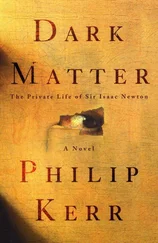Philip Kerr - A Man Without Breath
Здесь есть возможность читать онлайн «Philip Kerr - A Man Without Breath» весь текст электронной книги совершенно бесплатно (целиком полную версию без сокращений). В некоторых случаях можно слушать аудио, скачать через торрент в формате fb2 и присутствует краткое содержание. Год выпуска: 2013, Издательство: Quercus, Жанр: Триллер, на английском языке. Описание произведения, (предисловие) а так же отзывы посетителей доступны на портале библиотеки ЛибКат.
- Название:A Man Without Breath
- Автор:
- Издательство:Quercus
- Жанр:
- Год:2013
- ISBN:нет данных
- Рейтинг книги:4 / 5. Голосов: 1
-
Избранное:Добавить в избранное
- Отзывы:
-
Ваша оценка:
- 80
- 1
- 2
- 3
- 4
- 5
A Man Without Breath: краткое содержание, описание и аннотация
Предлагаем к чтению аннотацию, описание, краткое содержание или предисловие (зависит от того, что написал сам автор книги «A Man Without Breath»). Если вы не нашли необходимую информацию о книге — напишите в комментариях, мы постараемся отыскать её.
A Man Without Breath — читать онлайн бесплатно полную книгу (весь текст) целиком
Ниже представлен текст книги, разбитый по страницам. Система сохранения места последней прочитанной страницы, позволяет с удобством читать онлайн бесплатно книгу «A Man Without Breath», без необходимости каждый раз заново искать на чём Вы остановились. Поставьте закладку, и сможете в любой момент перейти на страницу, на которой закончили чтение.
Интервал:
Закладка:
‘Everyone in Smolensk knows about this terrible thing. Everyone. Anyone who says they don’t is lying. Lying because they are afraid. Or lying because they hate Germans more than they hate NKVD. I cannot say which it is because I don’t know, but they are lying. Lying is best way to stay alive in this town. Three years ago, when this thing happened – yes, it was spring of 1940 – the militia closed the road to Vitebsk, but they did not stop the train. I heard that people who were on the trains near Gnezdovo heard the sound of shots from Katyn Wood – at least until the NKVD came onto the trains and made sure all of the windows were closed.’
‘You’re sure about this?’ I said.
‘That everyone knows what happened? Yes, I’m sure.’ Tanya’s eyes flashed defiantly. ‘Just as everyone knows there were two thousand Jews from the ghetto at Vitebsk murdered by the German army at Mazurino. Not to mention all of the Jews who were found floating in the Zapadnaya Dvina River. They say that the lampreys caught from the Zap are the biggest ever this year because of all the bodies they had to feed on.’
Voss groaned, and I guessed it was because he’d eaten lamprey pie for dinner in the mess at Krasny Bor the previous evening.
I smiled. ‘Thank you, Tanya. You’ve been most helpful.’
‘I can go.’
‘We’ll take you home, if you like.’
‘Thank you, but no, I’ll walk. Is all right at night when no one sees. But not in the day. After you Germans have gone from Smolensk it will be pretty bad here, I think. It is best the NKVD don’t know I go with Germans.’
*
The local Gestapo was stationed in a two-storey house next to the railway station at Gnezdovo, so that officers could board the train and surprise anyone travelling on to the next stop, at Smolensk’s main station. The Gestapo always loved surprises, and so did I, which was why I was there, of course – although out of consideration for Lieutenant Voss I decided to spare him the ordeal of accompanying me to see Captain Hammerschmidt, who was in for a big surprise – perhaps the biggest surprise of his career. I pulled up in a cobbled yard next to a pair of camouflaged 260s, stepped out and took a longer look at the building in front of me. The bullet-marked walls were painted two contrasting shades of green, the darker matching the colour of the roof tiles, and there were bull’s-eye windows on the upper floor; the windows on the ground floor were all heavily barred. The clock above the arched entrance had stopped at six o’clock, which might have been meant as a metaphor, since that was often the time in the morning when the Gestapo preferred to call. In the grove of silver birch trees a short way from the house was a pile of sandbags fronted with an ominous-looking wooden post. Everything looked just as it ought to have done, although the building was, for my plainer taste, the wrong flavour: a sprinkling of chocolate chips on the mint ice-cream roof would hardly have looked out of place. Everything was quiet, but that wasn’t unusual; the Gestapo never has a problem with noisy neighbours. Even the squirrels in the trees were behaving themselves. Gradually a steam locomotive approached wheezily from the east. Very sensibly it didn’t stop at the deserted station – it was never a good idea to stop in the vicinity of the Gestapo. I knew that only too well, but I was never very good at listening to advice, especially my own.
I went inside, where several uniformed men behind several typewriters were doing their best to type with two fingers and to pretend that I didn’t exist. So I lit a cigarette and calmly glanced over some of the paper on the noticeboard. Among this was a wanted notice for Lieutenant Arkady Rudakov, which struck me as ironic, since from the emblem on the noticeboard and on some of the drawers on the filing cabinets – a yellow-handled sword against a red shield – I took the house to have belonged to the NKVD before it had belonged to the Gestapo.
‘Can I help you?’ one of the men said in a tone that was distinctly unhelpful. From the mild outrage I could hear in his querulous voice and see on his equally peevish face, he might have been addressing an impertinent schoolboy.
‘I’m looking for Captain Hammerschmidt.’
I went over to the window and pretended to look outside, but most of my attention was fixed on the fly running along the pane. The flies were everywhere now, following up the business of the Gestapo and the NKVD.
‘Not here,’ he said.
‘When are you expecting him back?’
‘Who wants to know?’ said the man.
‘I do.’ Now I was trying to match him for arrogance and contempt, well aware that I was about to win the game, and easily, too.
‘And who are you?’
I showed him my identity card, which was better than any ace, and my letter from the ministry.
The man folded.
‘Sorry sir. He was called back to Berlin, this morning. Unexpectedly.’
‘Did he say why?’
‘Compassionate leave, sir. A death in the family.’
‘That’s a surprise. Which is to say it isn’t a surprise at all. At least not to me, anyway.’
‘How’s that sir?’
‘What I mean is, I didn’t know there was any compassion in the Gestapo.’
I laid my business card on the corner of the man’s desk.
‘Tell him to come and find me at group HQ,’ I said. ‘That is when he’s finished grieving in Berlin. Tell him – tell him that I’m a friend of Tanya.’
*
Dr Marianne Kramsta had a noticeably galvanizing effect on the officers’ mess at Krasny Bor: it was as if someone had opened a grimy window and let the sunshine into that stuffy wooden room. Almost every officer in group HQ seemed to find her attractive, which was no surprise to me and probably not to her either, since she hadn’t dressed for dinner so much as armed herself for the conquest of all the Germans in Smolensk. Perhaps this is not entirely fair: Marianne Kramsta was wearing a very fetching grey crepe dress with a matching belt and long sleeves, and while she looked good, the plain fact of the matter is that she would have looked good wearing a truck tarpaulin. I watched with some amusement as one man drew out her chair, another fetched her a glass of Mosel, a third lit her cigarette, and a fourth found her an ashtray. All in all, there was a great deal of bowing and heel-clicking and kissing of her hand, which by the end of the evening must have looked like a Petrie dish. Even Von Kluge was struck with her, and having insisted that Dr Kramsta and Professor Buhtz join him and General von Tresckow at the field marshal’s own table, it wasn’t long before he was ordering champagne – I dare say that after cashing Hitler’s cheque he could afford it – and conducting himself like a smitten young subaltern in a romantic novel. Generally everyone behaved as if there had been an officers’ ball after all – with only one girl – and I’d almost made up my mind that the beautiful doctor had completely forgotten our date when, just after nine o’clock and underneath everyone’s widening eyes, she presented herself at my own insignificant corner table holding a fur coat and asked me if I was ready to drive her into Smolensk to see the Assumption Cathedral.
I jumped up like a young subaltern myself, stubbed out a cigarette, helped the lady on with the coat and ushered her outside to a 260 I’d borrowed for the evening from Von Gersdorff. I opened the car door, and ushered her inside.
‘Oooh, has it got a heater?’ she said when I was seated beside her.
‘A heater, seats, windows, windscreen wipers, it’s got everything except a spade,’ I said as we drove away.
‘You’re not kidding,’ she said.
I glanced to my right and saw she was holding the stock of a broom-handle Mauser on her lap. The stock was like a holster/carry-case: you clicked open the back of the stock and out came the gun that attached to it. Very neat.
Читать дальшеИнтервал:
Закладка:
Похожие книги на «A Man Without Breath»
Представляем Вашему вниманию похожие книги на «A Man Without Breath» списком для выбора. Мы отобрали схожую по названию и смыслу литературу в надежде предоставить читателям больше вариантов отыскать новые, интересные, ещё непрочитанные произведения.
Обсуждение, отзывы о книге «A Man Without Breath» и просто собственные мнения читателей. Оставьте ваши комментарии, напишите, что Вы думаете о произведении, его смысле или главных героях. Укажите что конкретно понравилось, а что нет, и почему Вы так считаете.












